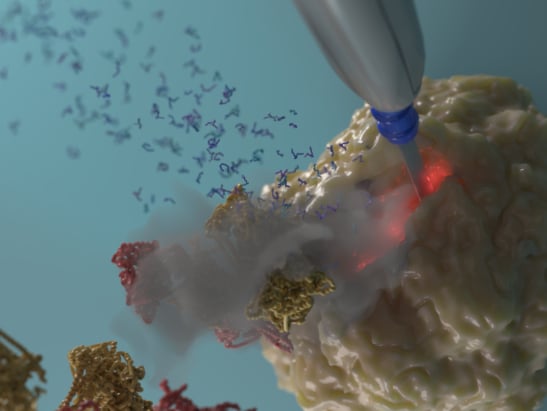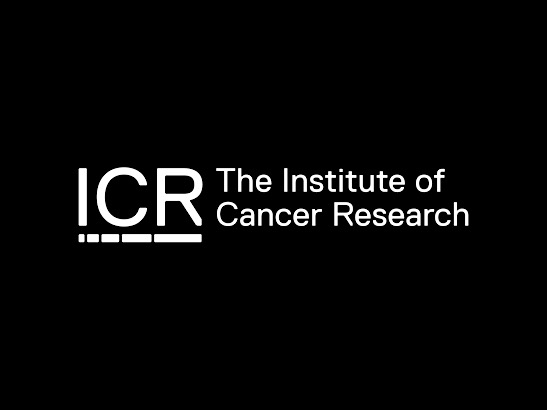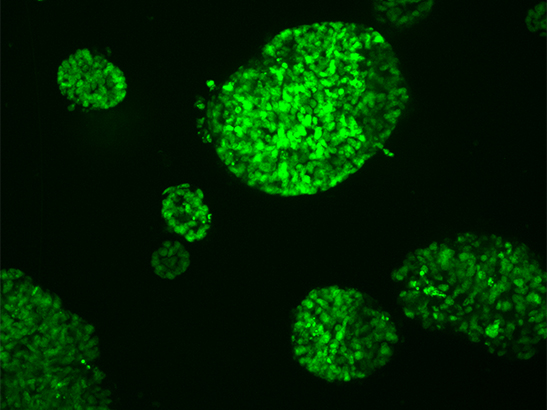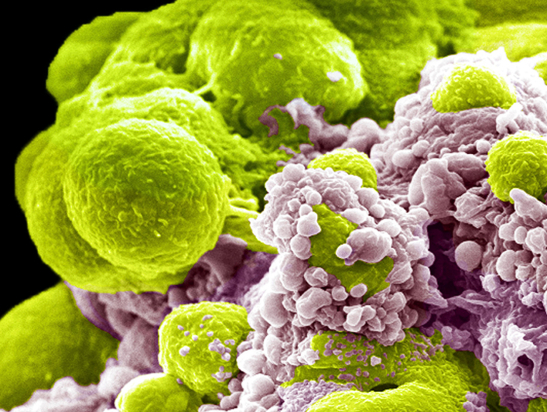Cancer discovery news
Our researchers are making the discoveries that defeat cancer. Read the latest findings from our world-leading research.
Visit our main news hub to read about news on new funding, our fundraising activities and much more. If you want to keep updated on our news, you can follow us on social media or sign up for our Search newsletter.
If you’re a journalist and want to find out more, you can contact our media relations team.

AACR Virtual Annual Meeting 2020: Personalised cancer vaccine shows promise in early trial
A personalised cancer vaccine, used in combination with an immunotherapy drug, triggers a response from the immune system that is specific to the cancer and shows some clinical benefit, according to the results of an early clinical trial presented at the virtual AACR conference.

Cancer’s reliance on fat could be targeted with new ‘drugs and diet’ treatment
Cancers are often heavily reliant on breaking down fats for their growth and spread, and could be treated by a highly innovative combination of new drugs and dietary changes, a major new study concludes.

ICR ramps up lab research after lockdown
ICR researchers are returning to their labs this week as we start to ramp up our pioneering cancer research following the disruption caused by the pandemic.

ICR and Cancer Research UK spinout company Monte Rosa Therapeutics launches with library of anti-cancer compounds
A company formed as a spinout from Cancer Research UK-funded science at The Institute of Cancer Research, London, has been publicly launched – revealing $32.5m in funding and a library of innovative anti-cancer compounds.

Isabella’s gift: The precious donation aiding vital research into childhood brain cancer
The parents of Isabella Ortiz, who died from a brain tumour, have highlighted the need for rare tissue donation, to help other children facing the same condition.

ICR statement regarding Black Lives Matter
As an organisation that believes passionately in equality, we want to express our solidarity with our Black, Asian and minority ethnic staff following the death of George Floyd.

Mini tumours help predict how cancer handles the heat of innovative cancer treatments
Scientists have shown that therapies which combine heat and radiation have a different effect on lab-grown mini tumours than they do on lab-grown cancer cells grown in a more traditional way in a two-dimensional layer.

Pioneer in building collaboration across research fields joins as Scientific Director of the Cancer Research UK Convergence Science Centre
The Institute of Cancer Research, London, and Imperial College London have appointed a leading expert in building interdisciplinary partnerships to head our joint Cancer Research UK Convergence Science Centre.

ASCO 2020: UK-first study shows feasibility of genetic screening for prostate cancer
Genetic screening for prostate cancer in GP surgeries could be effective at picking up otherwise undiagnosed cases of the disease, a new pilot study shows.

ASCO 2020: Blood test predicts response to prostate cancer treatment
A new blood test can predict how well men with advanced prostate cancer will respond to treatment and could replace some of the existing methods used to characterise and track the disease.

ASCO 2020: New optimised precision radiotherapy can reduce swallowing difficulties for head and neck cancer patients
A new optimised intensity-modulated radiation therapy (IMRT) could spare head and neck cancer patients’ adverse life-long side effects after treatment, new clinical trial results have shown.
-547x410.jpg?sfvrsn=c727183b_2)
AI could predict risk of lung cancer coming back
Computer scientists working with pathologists have trained an artificial intelligence (AI) tool to determine which patients with lung cancer have a higher risk of their disease coming back after treatment.